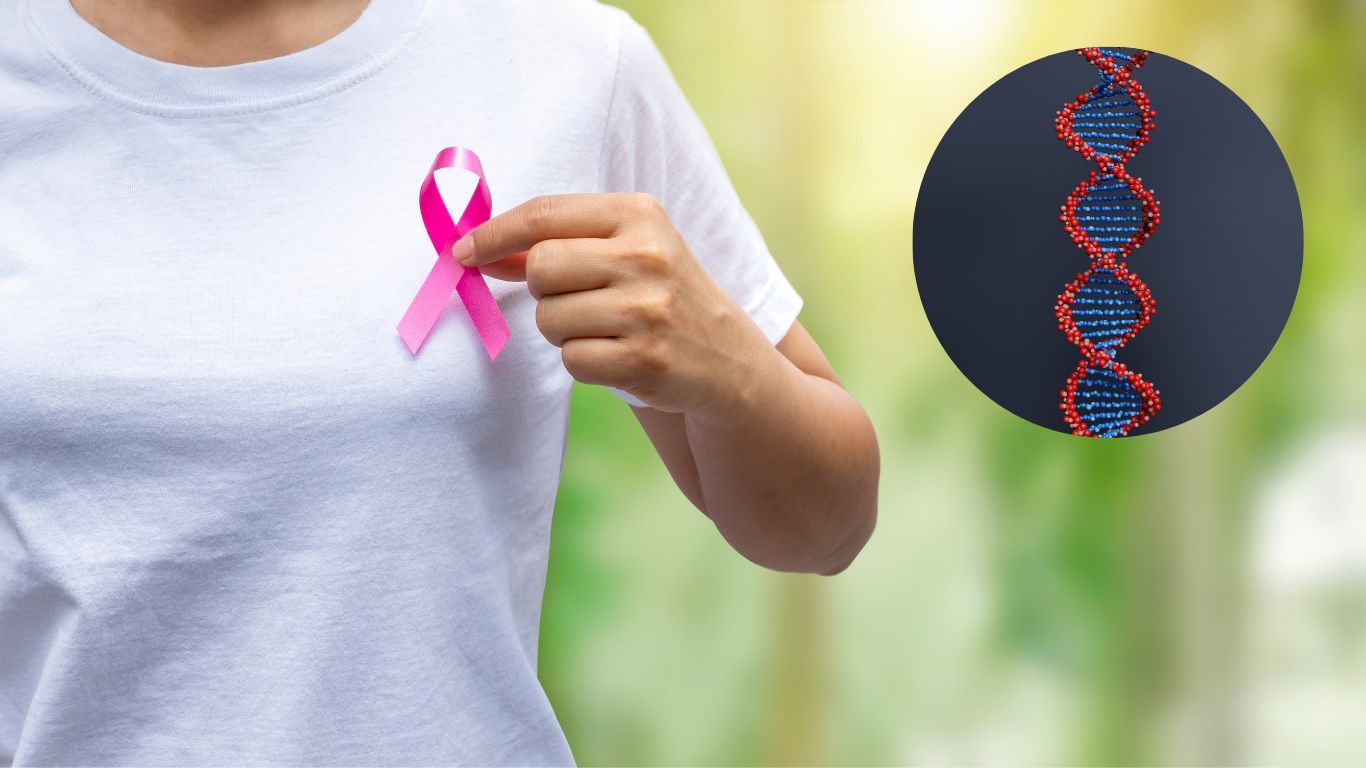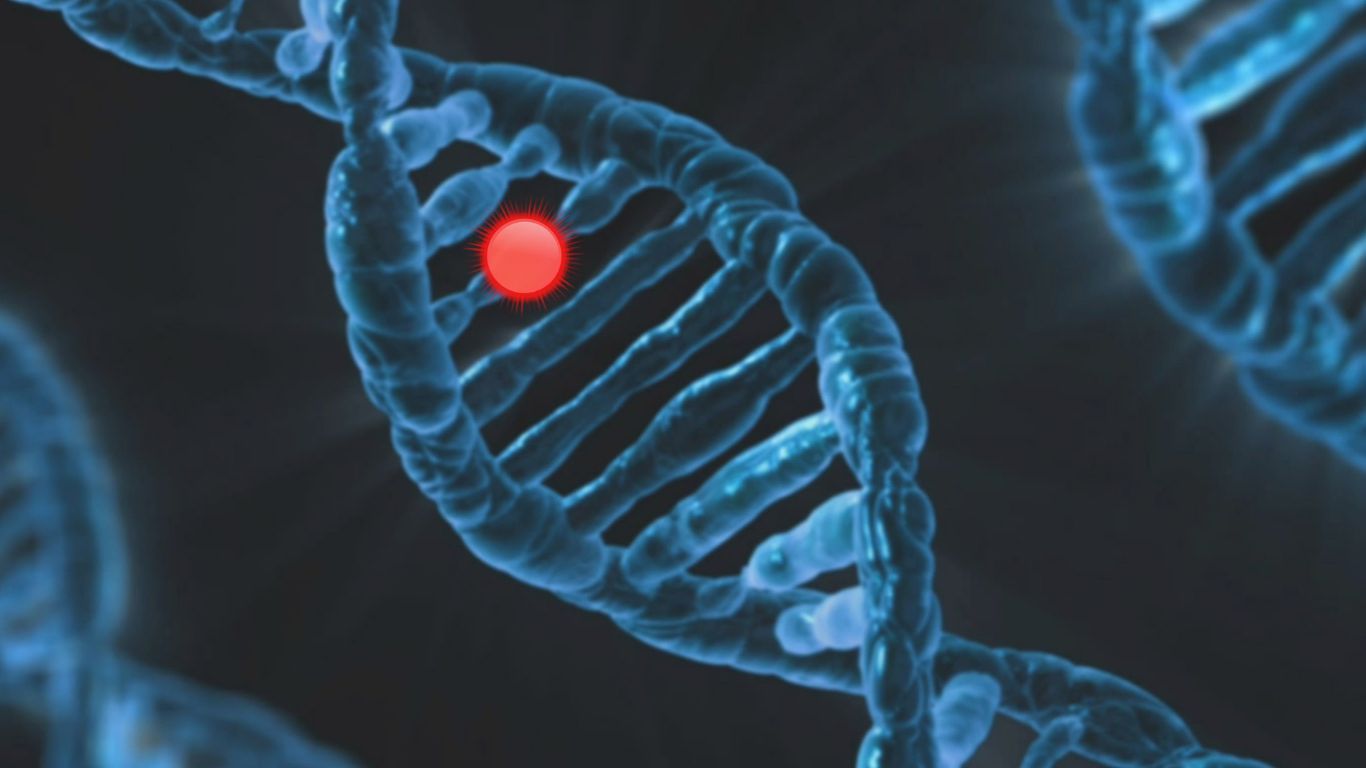
If you’ve been curious if breast cancer is hereditary, it’s likely because you’ve heard that other types of cancer are much more hereditary than breast cancer. Is breast cancer considered a hereditary cancer if only 5 – 10% of breast cancer cases are said to be linked to your genetics? This statistic proves that breast cancer is sometimes hereditary.
The cases of breast cancer that are linked to one’s DNA (the inherited cases of breast cancer) are associated with specific gene mutations in one’s DNA. Specifically, gene mutations in the BRCA1 and BRCA2 genes could cause a case of breast cancer you could blame on your genetics.
Curious how to get your DNA tested for the breast cancer gene? You can find out if you carry the specific gene mutation that causes breast cancer by taking a CircleDNA test. If the DNA test results show that you carry this mutation in your genes, it doesn’t necessarily mean you’ll get breast cancer, just that you’re at higher risk.
It’s important to learn if you’re at higher risk, genetically speaking, because you’ll want to start getting mammograms at 30 years of age if you have a genetic risk, instead of starting at 40 years of age. You’ll also want to get mammograms every year, instead of every two years.
Breast cancer is one of the most common forms of cancer and while it mostly affects women, rarely, men can get breast cancer as well.
In the United States, breast cancer accounts for approximately 30% of all new female cancer diagnosis reported each year.
While the causes of breast cancer are uncertain, there are many factors which can increase a person’s chances of developing breast cancer. For instance, simply being female is enough to increase your chances of getting breast cancer. The average risk of a woman in the US developing breast cancer at some point in her life is usually around 13%.
Breast cancer risk can also increase with age, as this form of cancer is most common in women over the age of 50, following menopause. However, another factor to consider when assessing your risk of getting breast cancer is your DNA.
While many women who get breast cancer do not have any family history of this cancer, gene mutations can pass down from one generation to the next, which increase the risk of a tumor or sarcoma.

Is Breast Cancer Hereditary? Breast Cancer and Genes
Remember that approximately 5 to 10% of breast cancer cases are thought to be linked to hereditary factors. As explained, specific mutations in your DNA can increase your chances of abnormal cell growth, which is one of the primary causes of cancer. The most common genes associated with hereditary breast cancer are BRCA1 and BRCA2 mutations.
In normal cells, these genes are responsible for creating proteins which repair damaged DNA. However, mutated versions of these genes from either parent can prompt abnormal cell growth, and the development of tumors. While the average woman has about a 1 in 8 chance of getting breast cancer during their lives, researchers believe approximately 70% of women with inherited BRCA1 and BRCA2 gene mutations will develop cancer.
So, now you understand why getting DNA tested for the breast cancer gene is important.
Women with these gene mutations are also more likely to be diagnosed with cancer at a younger age, and may have a higher risk of cancer in both breasts. Additionally, mutations to the BRCA1 and BRCA 2 genes can also increase a woman’s risk of ovarian cancer.
According to cancer research, BRCA mutations are most common in the United States among Jewish people of Eastern European origin. However, anyone, male or female can have these mutations.
If you find out you have the breast cancer gene, you’ll be able to take proactive and preventative measures such as starting regular screening mammograms.
The good news is that mammograms can catch breast cancer very early (long before symptoms or noticeable lumps develop in the breast tissue).
Breast cancer is one of the types of cancer that has a very high survival rate if caught early.
Other Genes Involved in Hereditary Breast Cancer
While BRCA1 and BRCA2 mutations are the most common cause of an increased breast cancer risk, there are other gene mutations which can also lead to hereditary cases of breast cancer. These mutations are less common, and may not increase your risk as much as the BRCA genes.
However, it’s still worth assessing your genetic makeup with your DNA test to determine whether you have a higher risk of the following mutations:
- ATM: In a typical human body, the ATM gene helps with the repair of damaged DNA. However, inheriting two mutated copies of this gene causes ataxia-telangiectasia, which may lead to damaged immune and nervous function. One mutated copy can increase your risk of breast cancer in some families.
- CHEK2: Another gene responsible for gene repair, CHEK2 can increase breast cancer risk when the gene is mutated, causing an increased chance of abnormal cell growth.
- PALB2: This gene is responsible for creating a protein that interacts with proteins made by the BRCA2 gene. If you have a mutated PALB2 gene, you may also have a higher risk of certain kinds of breast cancer.
- PTEN: In most people, the PTEN gene is responsible for regulating cell growth. However, inherited mutations of this gene can lead to Cowden syndrome, which leads to higher risk for cancerous, and non-cancerous tumor growth in the breasts, thyroid, ovaries, and uterus.
- TP53: The TP53 gene assists in preventing the growth of cells with mutated or damaged DNA. Damaged versions of this gene can cause Li-Fraumeni syndrome, which is linked to a higher risk of breast cancer. This syndrome can also increase the risk of other cancers, such as brain tumors, leukemia, and sarcomas.
- CDH1: Inherited mutations in the CDH1 gene cause an increased risk of hereditary diffuse gastric cancer. In some cases, a mutation in this gene can also boost a woman’s risk of invasive cancer in the lobes of the breast.
- STK11: People with defective STK11 genes can develop Peutz-Jeghers syndrome, which creates pigmentation on patches of skin, and abnormal growths throughout the body. These abnormal growths can also align with a higher risk of various cancers.

Understanding Your Genetic Risk Factors
Breast cancer isn’t the only type of cancer that you can learn your risk of through a DNA test. A CircleDNA test will provide you with reports on your genetic risk of many different cancers, diseases, and health conditions.
Knowing you’re genetically at risk makes all the difference when it comes to prevention. Not everyone with cancer-causing gene mutations gets cancer. Many lifestyle changes and responsible scheduling of screenings can save your life.





